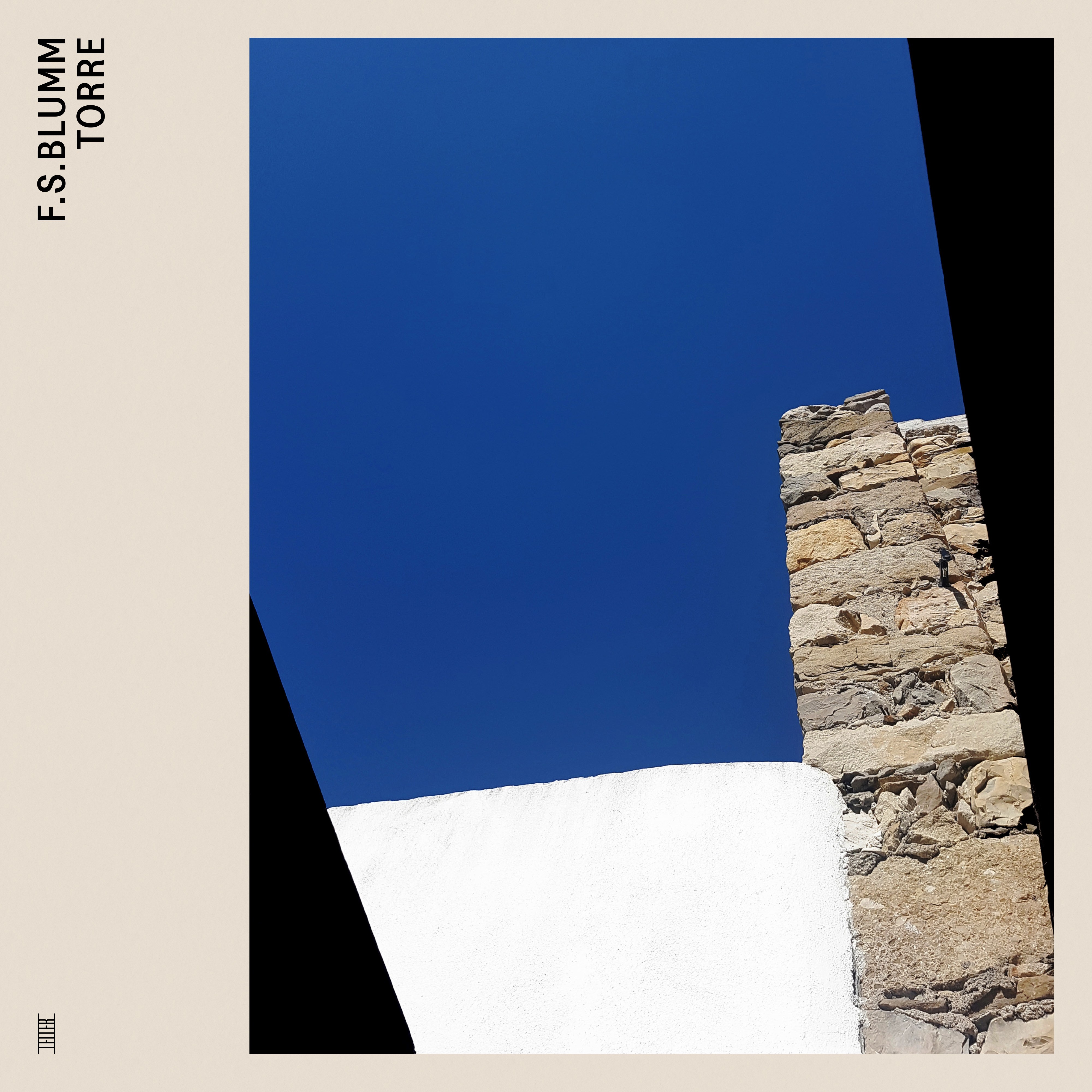-
LTR038F.S.BlummTorre2024

Following his collaborative album with Nils Frahm, ‘2X1=4’, released in 2021, and his latest solo work, ‘Kiss Dance Kiss’, Berlin-based musician, producer and writer F.S.Blumm shares his new album, ‘Torre’, via LEITER. Informally subtitled “Soothing Sounds For Adults”, the 13-track collection was inspired by months spent on the Italian Riviera, where its guitars were recorded “in the gaps of silence between the chiming of the village church’s bells and the barking of dogs”. It features appearances by multiple musicians, among them cellist Anne Müller and clarinettist Michael Thieke, who appear on all tracks and will join Blumm live as the F.S.Blumm Trio.
Once saluted by Pitchfork for his “damn charming music,” Blumm has been an endlessly inventive member of Germany’s musical underground since his debut release, 1998’s 17-track, 33rpm 7”, ‘Esst Obst!’ (trans: Eat Fruit!). Long known for his prolific collaborative output – which, alongside multiple releases with Frahm, includes recordings with David Grubbs and Lee ‘Scratch’ Perry – he’s also earned prestigious awards as a producer of radio dramas. Torre, however, sees him, in a sense, returning to his roots as a classically trained guitarist and enlarging on the style of earlier records – most notably 2006’s ‘Summer Kling’ – by arranging these compositions for what he calls instrumental ‘chamber pop’ or, more romantically, “music for staring into the distance”.
That’s evident in the likes of ‘Aufsetzer’, on which Thieke and Müller duel quietly with one another over Blumm’s lilting upright bass line, and the playful ‘Kurz Vor Weiter Ferne’, with Romy Pope adding flute and Roderick Bell baritone saxophone. There’s the pastoral ‘Bhf Bral’, to which Lydia Schmidt and Josepha Conrad add celestial vocals, and the uplifting ‘Daum’, embellished by Sven Kacirek’s marimba, not to mention the sumptuous ‘Shh’ with Pablo Volt on trumpet. Carefully notated, a skill Blumm had not employed for quite some time (although not on improvised bookends, ‘Da Ste (Intro)’ and ‘Da Ste (Coda)’), the album offers faint echoes of early Penguin Café Orchestra, perhaps Bill Wells, or even, at times, Mark Hollis’ solo album. None of these were ‘Torre’’s conscious musical influences, however. Looking back, Blumm instead locates them in other sources: the Jimmy Giuffre 3’s ‘7 Pieces’, once glued to his turntable, as well as late 60s French film music – “You know,” he smiles, “the ones with Romy Schneider and Michel Piccoli” – as well Krzysztof Komeda’s and Ennio Morricone’s sparser work. Either way, Blumm says, “this feels like home”.
Ironically, ‘Torre’ was not written at home, though it was conceived in a place that’s increasingly becoming one. In 2022, in order to prolong his summers, Blumm purchased a small apartment near the French/Italian border, situated above a cluster of other picturesque houses and exposed to gusts of wind – “a sound,” he says, “that strokes your soul” – in which swallows dart about on the air currents. Overlooking a valley, with just one small mountain separating him from the sea and – or so the elderly Signora next door once told him – walls dating back to the 16th Century, it’s featured on the album’s front cover and provides the ‘tower’ of the album’s title.
It was here that Blumm – who, as a youth, enjoyed studying guitar études as much as jamming to Iggy & The Stooges – pondered the proliferation of opposites in his vicinity: “asylum seekers and people seeking recreation, industrial estates and idylls for dropouts, busy beaches and lonely mountains. I like inner contradictions and can endure opposites. I regard any constructive approach, whether it’s different, even contradictory to my own, as an inspiration. I’m not afraid to ask when I don’t understand. For me, tolerance of ambiguity is a way against stagnation and a key to creativity.”
And thus it proved. “When I started,” he recalls, “I was there alone. I always need to take a step out of reality, to dive into my own world and get lost. For me, composing starts a long time before ‘composing’. First, I gather a lot of input, basically from urban life, then I need to contemplate and come to rest while travelling – that sounds like a contradiction, but for me it isn’t – or in the countryside or in solitude. Something has to grow inside before I can let something out.”
Though Blumm himself contributed the record’s crucial classical guitar – as well as bowed and picked upright bass, e-bass, keyboards, melodica and backing vocals – he’s nonetheless swift to praise those who joined him on this baker’s dozen of bucolic, pacific pieces, not least Müller and Thieke. “Both are composers themselves, as well as playing live in lots of ways and projects,” he explains. “Even when musicians play ‘only’ notes, it’s important they understand those notes. I told everyone to play ‘schnörkellos’ (trans. without frills), simply and soothingly. I was looking for beauty. Of course, beauty is a big word, and it’s a big task for me, accepting the beauty of beauty. Beauty can be shallow, and it’s somehow easier to use the language of conflict. That way, you can keep your distance, though the language of conflict may sound deeper. But I was sick of conflict. Too much ego. I longed for peace.”
It’s a goal he’s accomplished, if quietly, on this latest outstanding album. In fact, one might even consider ‘Torre’ the peak of his achievements to date. Consistently ambitious, defiantly undefinable, it confirms F.S.Blumm as one of his country’s most idiosyncratic musicians and represents – naturally – yet another towering, albeit typically modest, achievement. Rise above…